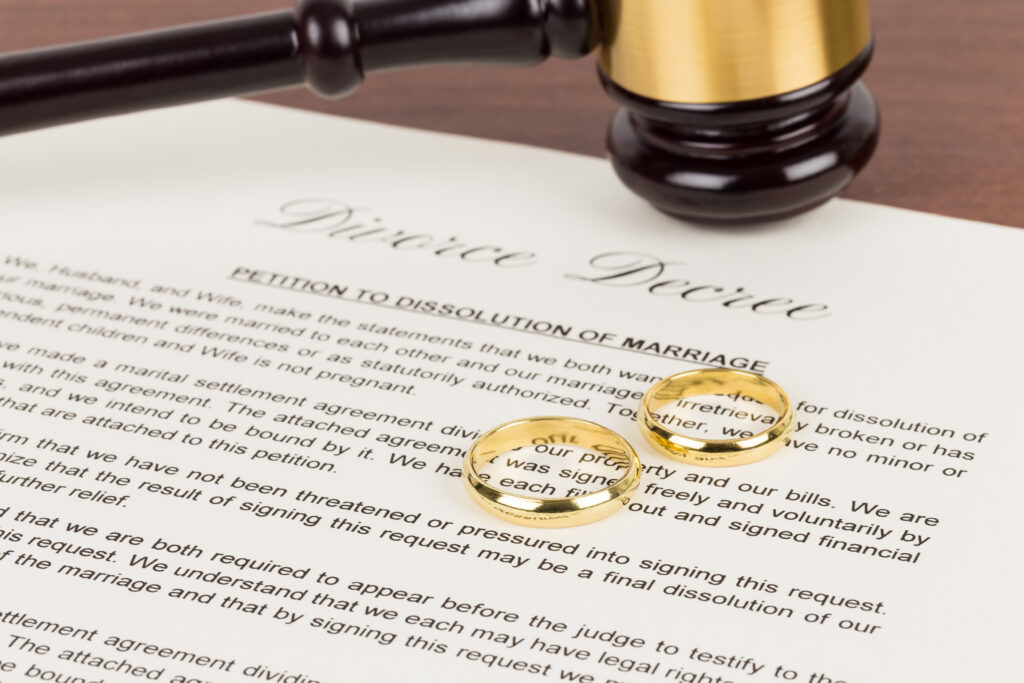Domestic Abuse & Injunctions
Herrington Carmichael advise on the legal protections that can be put in place and can point you in the direction of local organisations.
Domestic Abuse & Injunctions
Domestic Abuse can be an extremely difficult time. Family law recognises domestic abuse goes beyond physical violence. It encompasses a spectrum of coercive behaviors, including emotional manipulation, financial control, intimidation, and social isolation. These tactics aim to establish and maintain power and control over the victim, creating a pervasive climate of fear and dependence.
There are a few ways in which appointing a family solicitor can help you, including non-molestation orders, occupations orders and divorce.
Please note that we do not offer Legal Aid.
Coercive Control
We have considerable experience acting for individuals and families suffering domestic violence and recognise the harmful impact of controlling and coercive behaviour on its victims. We pride ourselves on being highly approachable, sensitive, and supportive during what can be a difficult and emotional time.
Coercive control is a form of domestic abuse in which someone tries to control their partner or family member. Coercive control is not about single arguements or disagreements, it is about behaviour patters – deliberate actions used to control another person. It can be subtle, in the form of emotional manipulation or monitoring, making you feel afraid or isolated, restricting access to money, controlling what you wear, where you go and who you see.
Protecting Yourself Tips
If an argument between you and your partner starts to build, try your best not to retaliate. Instead, walk away and go into another room in the house. If you are able to do so, leave the house and go for a walk. It is probably a good idea to:
- Have a think about the people you could contact; whether friends or family who might be able to get help for you if you are unable to do so yourself. Make sure you are readily able to make contact with them by keeping your phone to hand and charged.
- Ask friends or family nearby if you can stay with them during periods of isolation (provided this is safe to do so).
- If you are frightened that you are at serious risk of violence or harm, or a child is at risk, call 999.
- The police may be able to exclude your partner from your home there and then and impose bail conditions, keeping them away from you and your home, at least for the short term. Whatever action the police take, we would also encourage you to come and see us for an initial consultation, to discuss your options and whether it may be appropriate to apply for an injunction.
Non-Molestation Orders
A non-molestation order is a legal injunction issued by a court to protect an individual from harassment, threats, intimidation, or any form of domestic abuse. It aims to prevent someone (usually an ex-partner or family member) from harassing or causing harm to the person applying for the order, as well as any children involved. A non-molestation order carries with it an automatic power of arrest if breached.
The existence of a non-molestation injunction order could have far reaching consequences, particularly if you have children. If you do have children, an order could affect when and where you see your children, so it is important to seek legal advice early.
Having a former partner or spouse bring domestic abuse proceedings against you is highly distressing, however, our team of highly skilled lawyers has experience in handling complex domestic abuse defence cases.
We can help you to defend a non-molestation injunction order application and ensure that your voice is heard so that you are able to rebut any untrue allegations.
We can provide advice about your options and your prospects for success so you can make an informed decision about how to proceed.
Occupation Orders
An occupation order is a legal directive issued by a court that regulates who can live in a property, exclude someone from a property, or set boundaries regarding access to certain areas within a property.
An occupation order can:
- Determine who can live in the home: It might specify who can reside in the property or exclude someone from living there altogether.
- Establish specific areas: The order can designate specific areas within the property that one party can access while restricting access for others.
- Set conditions or limitations: It may impose conditions or restrictions on occupation, such as staying away from certain parts of the property or maintaining distance from the other party.
Accused of Domestic Abuse
If you have been served with court papers notifying you that your partner has applied for an injunction against you and that there is a hearing taking place in the Family Court, it is important that you take advice as soon as possible. If you do not attend the hearing, there is a risk that an order may be made in your absence. If an order is made, there could be serious consequences if you then inadvertently breach the terms of the order.
The existence of a non-molestation injunction order could have far-reaching consequences, particularly if you have children. If you do have children, an order could affect when and where you see your children, so it is important to seek legal advice early.
Our team of highly skilled lawyers has experience in handling complex domestic abuse defence cases. We can help you to defend a non-molestation injunction order application and ensure that your voice is heard so that you are able to rebut any untrue allegations.
Divorce from Domestic Abuse
Many jurisdictions recognise “unreasonable behavior” or “adultery” as grounds for divorce in domestic abuse cases. However, proving abuse can be difficult, especially emotional abuse. Gathering evidence like police reports, medical records, witness statements, and even recordings can strengthen your case. You can also try for “no-fault” divorce, making abuse unnecessary to prove. However, documenting the abuse can strengthen your case and potentially influence child custody or spousal support.
Helplines for Support
National Domestic Abuse Helpline
https://www.nationaldahelpline.org.uk/
0808 2000 247
Women’s Aid
https://www.womensaid.org.uk/
0845 345 4345
ManKind Initiative
https://mankind.org.uk/
01823 334 244
GALOP LGBTQ+
https://galop.org.uk/
0800 999 5428
Coercive Control
We have considerable experience acting for individuals and families suffering domestic violence and recognise the harmful impact of controlling and coercive behaviour on its victims. We pride ourselves on being highly approachable, sensitive, and supportive during what can be a difficult and emotional time.
Coercive control is a form of domestic abuse in which someone tries to control their partner or family member. Coercive control is not about single arguements or disagreements, it is about behaviour patters – deliberate actions used to control another person. It can be subtle, in the form of emotional manipulation or monitoring, making you feel afraid or isolated, restricting access to money, controlling what you wear, where you go and who you see.
Protecting Yourself Tips
If an argument between you and your partner starts to build, try your best not to retaliate. Instead, walk away and go into another room in the house. If you are able to do so, leave the house and go for a walk. It is probably a good idea to:
- Have a think about the people you could contact; whether friends or family who might be able to get help for you if you are unable to do so yourself. Make sure you are readily able to make contact with them by keeping your phone to hand and charged.
- Ask friends or family nearby if you can stay with them during periods of isolation (provided this is safe to do so).
- If you are frightened that you are at serious risk of violence or harm, or a child is at risk, call 999.
- The police may be able to exclude your partner from your home there and then and impose bail conditions, keeping them away from you and your home, at least for the short term. Whatever action the police take, we would also encourage you to come and see us for an initial consultation, to discuss your options and whether it may be appropriate to apply for an injunction.
Non-Molestation Orders
A non-molestation order is a legal injunction issued by a court to protect an individual from harassment, threats, intimidation, or any form of domestic abuse. It aims to prevent someone (usually an ex-partner or family member) from harassing or causing harm to the person applying for the order, as well as any children involved. A non-molestation order carries with it an automatic power of arrest if breached.
The existence of a non-molestation injunction order could have far reaching consequences, particularly if you have children. If you do have children, an order could affect when and where you see your children, so it is important to seek legal advice early.
Having a former partner or spouse bring domestic abuse proceedings against you is highly distressing, however, our team of highly skilled lawyers has experience in handling complex domestic abuse defence cases.
We can help you to defend a non-molestation injunction order application and ensure that your voice is heard so that you are able to rebut any untrue allegations.
We can provide advice about your options and your prospects for success so you can make an informed decision about how to proceed.
Occupation Orders
An occupation order is a legal directive issued by a court that regulates who can live in a property, exclude someone from a property, or set boundaries regarding access to certain areas within a property.
An occupation order can:
- Determine who can live in the home: It might specify who can reside in the property or exclude someone from living there altogether.
- Establish specific areas: The order can designate specific areas within the property that one party can access while restricting access for others.
- Set conditions or limitations: It may impose conditions or restrictions on occupation, such as staying away from certain parts of the property or maintaining distance from the other party.
Accused of Domestic Abuse
If you have been served with court papers notifying you that your partner has applied for an injunction against you and that there is a hearing taking place in the Family Court, it is important that you take advice as soon as possible. If you do not attend the hearing, there is a risk that an order may be made in your absence. If an order is made, there could be serious consequences if you then inadvertently breach the terms of the order.
The existence of a non-molestation injunction order could have far-reaching consequences, particularly if you have children. If you do have children, an order could affect when and where you see your children, so it is important to seek legal advice early.
Our team of highly skilled lawyers has experience in handling complex domestic abuse defence cases. We can help you to defend a non-molestation injunction order application and ensure that your voice is heard so that you are able to rebut any untrue allegations.
Divorce from Domestic Abuse
Many jurisdictions recognise “unreasonable behavior” or “adultery” as grounds for divorce in domestic abuse cases. However, proving abuse can be difficult, especially emotional abuse. Gathering evidence like police reports, medical records, witness statements, and even recordings can strengthen your case. You can also try for “no-fault” divorce, making abuse unnecessary to prove. However, documenting the abuse can strengthen your case and potentially influence child custody or spousal support.
Helplines for Support
National Domestic Abuse Helpline
https://www.nationaldahelpline.org.uk/
0808 2000 247
Women’s Aid
https://www.womensaid.org.uk/
0845 345 4345
ManKind Initiative
https://mankind.org.uk/
01823 334 244
GALOP LGBTQ+
https://galop.org.uk/
0800 999 5428
FAQs
What to do if you are experiencing coercive control
If possible, do try and sit down with your partner and explain that you find their behaviour unacceptable. Perhaps ask them to seek help from their GP or local therapy provider.
If this is not an option, you may be able to work with a mediator, who will help you both to communicate clearly and talk through the issues.
If neither of these options is appropriate, we would recommend that you come and see us for an initial advice as to the options available to you, to ensure that your safety is properly considered and that all measures are taken to protect you from harm or the risk thereof.
If you at immediate risk of harm, call the police.
How long to divorce proceedings take?
In theory, the process for obtaining a divorce will take no less than 26 weeks from when a divorce application is issued. However, most people find that the process of resolving their finances can delay matters.
I have been married for less than a year – can I get divorced?
In order to divorce in England and Wales, parties must have been married for at least one year.
In the event that you have been married for less than one year but you wish to formally record your separation and any agreement you have reached in relation to your finances, one option is to enter into a Separation Agreement which can remain in place until such time as you can divorce.
Legal Insight
Meet the Team
Related expertise
Best Law Firms 2024
Herrington Carmichael has once again been named in the Times Best Law Firms. We were first listed in 2023 and have once again made the Best Law Firms list for 2024.











